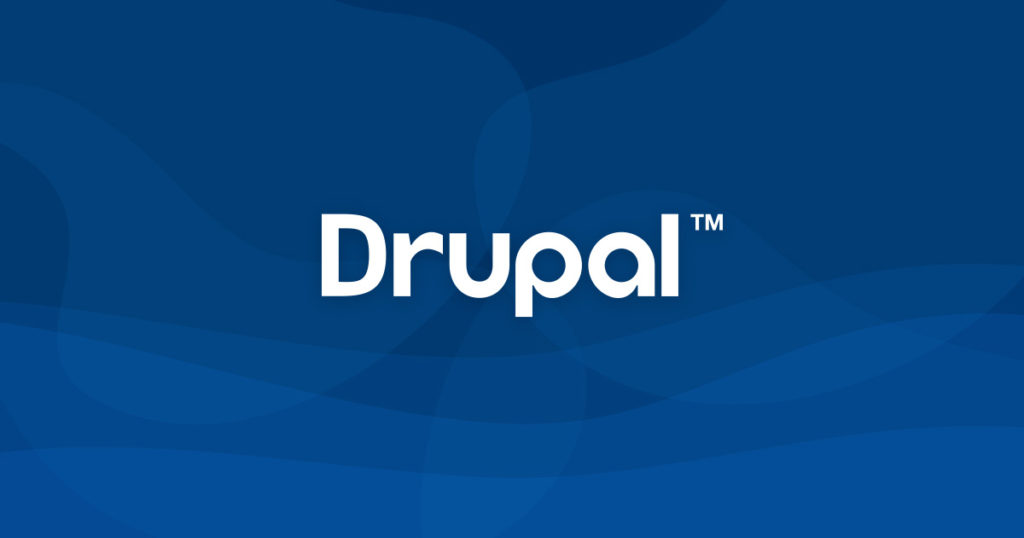At Centretek, we’re technology agnostic, working with a variety of open-source and closed-source technologies and content management system (CMS) platforms. Our in-house team is comprised of .NET and PHP developers, who also work in Java. Recently our team has been working with Drupal, Sitecore, Sitefinity, Episerver, DNN, and WordPress.
Our current and prospective hospital and healthcare clients often come to us for advice on “the best CMS for healthcare.” Of course, there isn’t one right answer for every organization, and the appropriate CMS will depend on variables such as the desired feature set, in-house technical capabilities and existing skill set, integration requirements, and budget. The open-source CMS Drupal is often on the short list of CMS options our clients are considering.
Healthcare Systems and Hospitals Using Drupal
A lot of our healthcare work involves supporting organizations that have chosen Drupal as their CMS. We helped lead some of the earliest enterprise Drupal implementations for hospitals and healthcare systems; e.g. Cooper University Health Care and St. Louis Children’s Hospital. Since then we’ve built and supported many more Drupal websites for UMass Memorial Health Care, Rush University Medical Center, Doctors Community Hospital, Midwest Orthopedics at Rush, Nebraska Medicine, and Phoenix Children’s Hospital, to name a few.
Drupal continues to be one of the strongest options for healthcare websites. Dozens of leading organizations have built their website on Drupal in the last few years:
|
|
List of hospital websites using Drupal
Why Hospitals and Healthcare Providers are Choosing Drupal
- Vendor –neutral.Choosing Drupal means you are not locked into working with a specific vendor for future enhancements and support. For healthcare organizations using single-vendor supported proprietary CMS solutions, if there is a need to switch vendors, migration to a new CMS platform will be required. Unfortunately, we see this scenario often in healthcare. Fortunately for organizations using Drupal, if there is a need to switch vendors, migration to a new CMS platform is not required. There are hundreds of qualified vendors that support Drupal, organizations are never “locked in” with one specific Web partner.
- Provides an open, scalable framework.Drupal provides an open framework that offers an almost limitless ability to extend and customize the system for all types of Web applications.
- Open APIs facilitate integration with third-party systems and data sources like a CRM, marketing automation platforms, e-commerce solutions and social media, as well as industry-specific platforms like credentialing systems, call center software, patient portals or syndicated health content.
- Responsive design (for mobile devices) is prebuilt into many themes.
- Built-in search engine optimization (SEO) tools and best practices (e.g., custom URLs).
- Integration with a wide variety of databases.
- Integration with Apache SOLR search for advanced faceted search capability.
- Flexible role-based permissions and publishing workflows.
- Easily defined custom taxonomies.
- Large active developer community. Drupal has one of the largest and most active developer communities. As such, there are more than 16,000 prebuilt Drupal modules that can be leveraged to greatly speed up the development process. Custom modules and plugins can also be built to handle unique business rules and needs.
- No licensing costs.Open Source Software systems like Drupal and WordPress are free to use and customize. There are no licensing costs, which result in huge savings when compared to the initial and recurring licensing fees of leading proprietary products.
- It’s proven and its usage is growing. More than 1 million websites are powered by Drupal including high-profile sites like The White House, Zappos, University of Michigan Health System, Duke Medicine, Northwestern Medicine, PBS, NBC, University of California San Francisco, Whole Foods, and Duke University. The Weather Channel (one of the world’s most visited sites) recently decided to move to Drupal.

Drupal’s Future in Healthcare
We don’t see Drupal’s exponential growth in healthcare slowing anytime soon. Drupal certainly offers a more flexible, sustainable and less-risky option than the healthcare-specific, proprietary CMS products.
High profile hospital websites like Rush University Medical Center, Duke Medicine, Northwestern Medicine, Memorial Sloan-Kettering Cancer Center, and Children’s Hospital of Philadelphia have further elevated Drupal’s profile. In our experience, it’s these types of forward-thinking organizations with progressive digital teams who are most eager to move to a platform like Drupal. As healthcare provider’s digital teams continue to grow and mature, more and more organizations will recognize the benefits of building their sites on Drupal.
The recent launch of Drupal 8 (with its vast improvements for developers and designers) provides an even more compelling case for organizations evaluating CMS options.
Learn more about our drupal design and development services for hospitals and healthcare systems.



